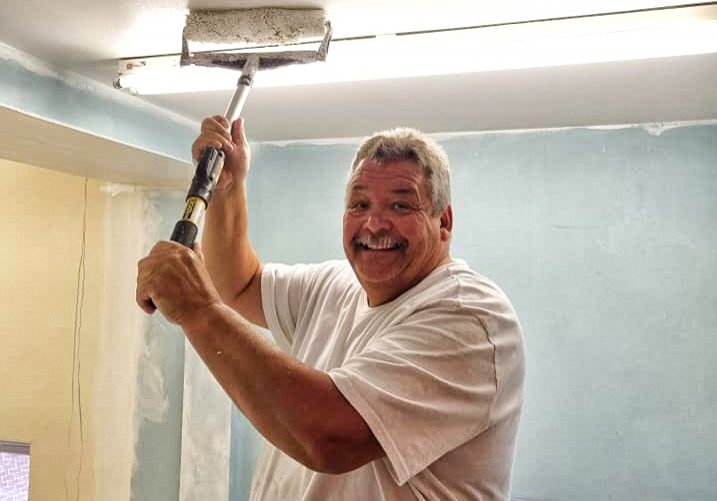How to run virtual activities
While Sea Cadets continues online, a volunteer shares their advice from a year of lockdown
There’s light at the end of the lockdown tunnel and hopefully Sea Cadets will be back to running face-to-face activities again soon. But for the last 12 months Virtual Sea Cadets has offered a lifeline to cadets around the UK during the pandemic, helping them to keep busy and see their friends online. PO (SCC) Samantha Hayward, Commanding Officer at Brentwood Sea Cadets, reflects on the highs and lows and offers some tips for making the best of it.
Make it fun and engaging
My biggest tip for the virtual sessions is that if it is not fun or enjoyable for you to run, it won’t be fun or engaging for the cadets. We have all of our modules available on Google Classroom for our cadets to dip in and out of as they want and so that leaves our Zoom sessions free for more of a weekly check in and social get together.
I have good lines of communication via WhatsApp with all of the parents who let me know what is going on in the lives of the cadets – from getting a new kitten to being appointed head boy/girl at school. I announce these things on our weekly sessions and the cadets are able to chat about them and congratulate each other. It’s also chance for parents to enjoy the special news and join in their child’s congratulations, which they may not have been able to do with their school’s online lessons.
Along with recent discussions about GCSE options that some of our cadets wanted to share, we have also had cadets share sad news such as the loss of a pet, which sparked discussions from other cadets about pets they had lost too – it was a heart-warming session. The sessions are kept to an hour in length and cadets are able to ask questions about the modules they’re working on, if they are having any difficulties or need clarification on something.
“I always say every cadet’s name at least once during the session, with a positive comment”
They can also share any work they are particularly proud of. We always meet in uniform as I feel it is important that the cadets continue to go through the process of putting on the uniform and keeping it clean and smart. I remind parents of what will be happening during the session when I send out the Zoom link, for example, I will send a reminder that boots will be inspected. It allows the cadets to get it done or at least have a go at doing it. I also ensure that I say every cadet’s name at least once during the session with a positive comment, even if it is just saying “Hello” to them directly, the cadet knows that I have noticed them and that I’m pleased to see them.
Take advantage of technology
During the first lockdown I made some applications to the Sea Cadets Digital Fund and was able to get Kindle Fire tablets for the cadets who were having difficulty getting online. This was fabulous as the family of the cadets who received them realised that we were really there for them and that we cared about their child.
Run courses virtually
I have asked our cadets to get involved in as many of the virtual courses as they can and then let us know about the courses on our weekly sessions. The national virtual basic Catering and national virtual basic PT courses which were run last summer were wonderful to keep our cadets engaged and they are eager to do more.
It made them feel part of a much bigger Sea Cadets family, which I believe is an important part of being a sea cadet. One of our cadets also successfully completed the national virtual Advanced Electrical and Mechanical Engineering courses, and was so enthusiastic about them that we have had a number of cadets make requests to start a basic course so they too can work their way up. If you have cadets doing any of the virtual courses, get them to share what they experienced with the other cadets. They can answer questions and even encourage others to have a go.
“It’s a joy for me to catch up with them and to be able to hear what they have been up to and to share ideas for new projects”
Balance life with Virtual Sea Cadets
As the palliative carer of my elderly mother who lives with me, no two days or nights are the same. I have two teenagers currently studying for exams and a husband who is an officer at the local fire station. He works an eight-day shift pattern and so in lockdown, knowing which day of the week it is can be a real challenge. One thing that does remain constant though is the weekly Zoom sessions with the cadets and I really do look forward to seeing their smiling faces. It’s a joy for me to catch up with them and to be able to hear what they have been up to and to share ideas for new projects.
I try to get outside for a walk each day (even if it’s just 10 minutes) and I know that I am lucky that my teenagers are happy to take over the care of their Nan while I’m out of the house. Thanks to Sea Cadets they both have RYA Aquatic First Aid qualifications (taken when they became paddle-sport instructors) and as a result, are confident young carers.
Get cadets outside
From the first lockdown, I encouraged cadets to get involved in activities which involved the outdoors or physical activity as much as possible. One of these was inspired by Joe Wick – cadets all had a go at his morning workouts then designed a workout of their own, which they shared with other cadets. This was really successful and whole families were doing the workouts.
Try running competitions. I set a Chief Officer’s challenge using the What3Words App, which involves cadets walking to five local points of interest, solving a clue to identify a building or feature and taking a selfie with it in the background. Once all five correct selfies are sent to me, I post them a Sea Cadets beanie as a prize.

I arranged for our cadets to have some ‘grow your own’ vegetable kits through a partnership with the local council and Abberton Rural Training College. They supplied our cadets with planters, soil, seed trays, seeds and online tutorials about how to get started, as well as support throughout the growing process. We have since set ourselves up in partnership with Grow Your Own Brentwood group, a local seed bank, and some of our cadets will be helping with this as part of their Duke of Edinburgh’s Award volunteering.
With the permission of my local council, I applied to The Woodland Trust to get 30 free trees for cadets to plant in a local park. I chose the trees with the council’s Countryside Manager and will arrange a suitable date later in the year for the planting. The trees make another excellent project for cadets doing their DofE as they can make weekly visits to the site to check on the trees. If you would like to apply for your own trees, go to the Woodland Trust website.
Look after yourself
The workload in my daily life is pretty heavy at times and being constantly on call through the night means that tiredness often crashes over me during the day. My advice to everyone is take some time for yourself and if you can, go for a walk and get some fresh air. Make sure that what you are doing is manageable and realistic for both you and the rest of your volunteers and cadets. We’ve only been meeting virtually once a week and for us, that is enough. If meeting twice a week feels too much for you, it may feel that way for your cadets too.
“Be flexible and open to opportunities – try linking up with other units and sharing the workload with combined Zoom sessions”
Don’t be afraid to change things up – we now meet on a Saturday instead of during the week as cadets and volunteers were struggling with managing work and school commitments. Be flexible and open to opportunities – try linking up with other units and sharing the workload with combined Zoom sessions. The main thing is to let others know if you need any help – you’re not alone and while we are virtual how about connecting with a unit from outside your area? Most units have a Facebook page that you can like and then send them a message. Let’s support each other through what is hopefully the end of these tricky times.
More Advice

Careers: How to become a submariner
Ever wondered what it’s like to work underwater? Mechanical engineer Lt. Isobel Rawlinson talks about her role, and rowing across the Atlantic


